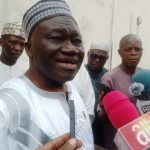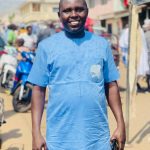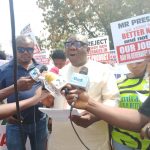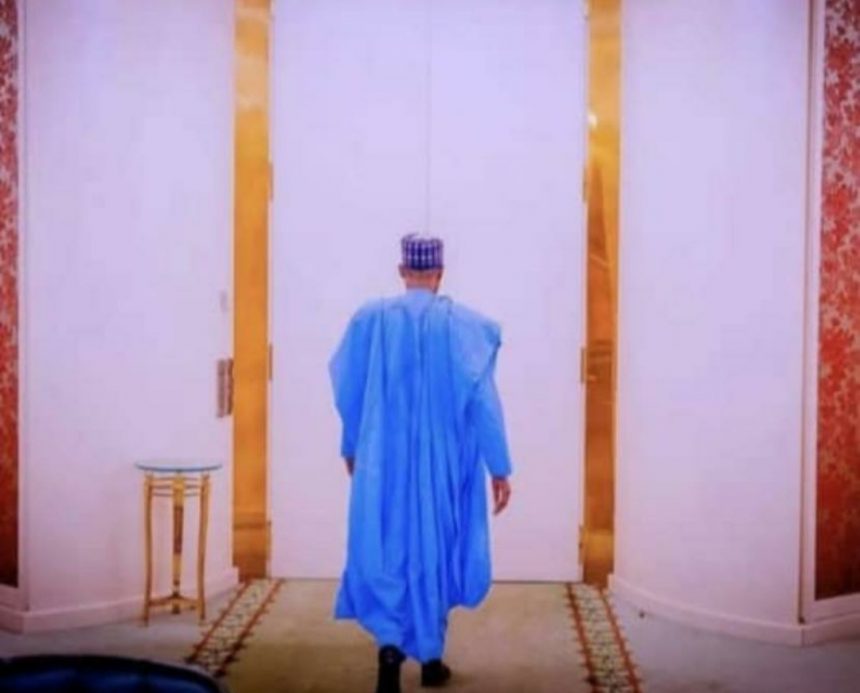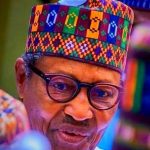The General’s Echo: A Rhetorical Reflection on the Life, Legacy, and Labyrinth of General Muhammadu Buhari
By Dr. Aiyeku Olufemi Samuel
Governance Analyst | Development Economist | Strategic Development Advocate
He came, not as a whisper, but as a marching storm.
He led, not as a crowd-pleaser, but as a man of steel carved in the barracks of discipline and the doctrine of duty.
He ruled, not always with roses, but often with the raw, clenched fist of resolve.
General Muhammadu Buhari: a name that stirred devotion and derision, reverence and rebuke — often in the same breath.
Was he a saint among sinners, or a soldier lost in a civilian maze?
Was he the redeemer we needed—or the disciplinarian the nation feared?
Did he build or merely delay the collapse of the foundations?
History must wrestle with these questions—because the man, now etched in memory, remains as complex as the country he once ruled.
A Life Measured in Marches, Moments and Mistakes
Born of Katsina soil, Buhari’s rise was not accidental. He did not just “grow” into power—he was summoned into it. First through the barrel of the gun in 1983 and later by the ballot in 2015. Few men in Nigeria’s history have tasted both military command and democratic legitimacy. His signature traits? Consistency, disguised simplicity, efficiency, and ruthless devotion** to order—even when order came at the cost of empathy.
He spoke less and did more. But often, did he do enough?
“You can’t fight corruption with mere slogans. You need courage and consistency.” — Buhari, 2015
But consistency without context can become a cage. Courage without compassion can become cruelty.
The Irony of Governance: The Silent Whistle of Disillusionment.
Under his civilian presidency, Nigeria saw monumental decisions:
* The controversial removal of fuel subsidy in 2016 and the market deregulation that followed.
* The launch of *Social Investment Programmes* like N-Power and TraderMoni—innovative in design, yet criticized in execution.
* A massive infrastructure drive—over 13,000 km of roads built or rehabilitated, yet potholes remained in the lives of many.
* The reconstruction of the Second Niger Bridge, completed in his final year—a promise long made by predecessors.
Yet, what shall we say of the shadows?
The *unemployment rate ballooned from 8.2% in Q2 2015 to 33.3% by Q4 2020*.
The *naira plummeted*, foreign reserves dwindled, inflation climbed to *over 24% by 2023*, and the debt stock rose beyond N87 trillion , according to DMO figures.
Buhari’s war on corruption yielded convictions, but his own kitchen cabinet sometimes smelt of untouched rot.
The rhetoric of anti-terrorism clashed with the blood on Kaduna-Abuja highways.
Was he betrayed by those who served him—or was silence his greatest endorsement of their excesses?
Metaphors in Legacy: The General as a Mirror of Nigeria
He was a mirror, not a messiah.
A reflection of our longing for order, yet a revelation of our own contradictions.
He ruled with spartan dignity, but sometimes seemed distant from the hunger of the masses.
“When a leader becomes too quiet, the nation starts to scream,” a wise elder once said.
And scream we did—during the #EndSARS protests, during subsidy removals, during border closures that hurt the poor more than the elite.
Yet, in death—if truly it comes—what remains?
A name that *cannot be erased* from our history.
A soldier who did not flinch in storms—but often failed to carry the people along.
A patriot whose vision may have outlived his tools.
A man who fought many battles—but sometimes forgot to listen.
Lessons for a Nation Still Bleeding and Dreaming
If the Buhari years taught us anything, it is that no leader, no matter how iron-willed, can fix Nigeria alone.
It requires a *coalition of the competent*, a *culture of accountability*, and a *citizenry that does not worship power, but participates in it*.
The future must remember Buhari not as a flawless figure, but as a *flawed giant* whose strength lay in consistency—but whose failure lay in communication, delegation, and holistic governance.
“The power to rule must never be greater than the willingness to serve.”
~ Dr. Aiyeku Olufemi Samuel
“Ruthlessness without wisdom becomes tyranny. Simplicity without empathy becomes blindness.”
~ Dr. Aiyeku Olufemi Samuel
So we ask, with humility and history as our witness:
Will we walk this road again? Or will we finally learn from the footsteps—and missteps—of The General?
As the dust settles and the curtain falls, Buhari remains a parable:
Of power, purpose, paradox—and the price of unfinished transformation.
May his legacy be debated with honesty, and may Nigeria continue to search—not just for rulers, but for nation-builders.
Dr. Aiyeku Olufemi Samuel
Co-Founder & Lead Consultant, Global Human Capital & Energy Management Limited
Governance Analyst|
Development Economist|
Policy Consultant| Strategic Development Advocate| Climate Action Enthusiast | Sustainability & Impact Investing Specialist|Girl-child Advocacy| PPP & CRM Specialist /Sales Innovation & Transformational Results-Driven Business Analyst



